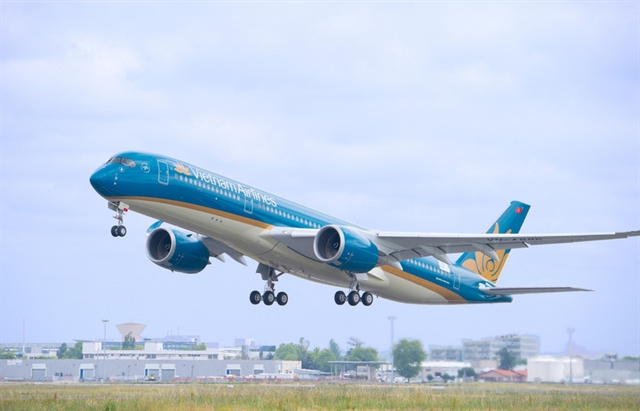 Politics & Law
Politics & Law

.jpg)
|
| A view of the discussion on the draft Law on Mobile Police during the second plenary session on Tuesday. VNA/VNS Photo |
HÀ NỘI – Controversy over military equipment including aircraft and vessels for mobile police forces divided National Assembly deputies at a discussion on the draft Law on Mobile Police during the second plenary session on Tuesday.
Deputy Đặng Hùng Sỹ from southern Bình Thuận Province said the mission of the mobile police was to ensure security and order, handle riots and fight terrorism, so aircraft and vessels for this force were necessary.
“The cost is expensive, but the mobile police must be modernised with these vehicles, maybe not in the near future, but it is necessary in the long term,” he said.
Deputy Đỗ Ngọc Thịnh from south-central Khánh Hoà Province agreed, saying mobile police are an important part of the police, and we shouldn’t say no to these vehicles because of the high cost.
In fact, in many countries, this type of force should be equipped with the most modern equipment, he added.
Hoàng Đức Thắng, deputy head of NA deputies from central Quảng Trị Province, objected to the opinion, stating that this was a big policy that required a specific impact assessment report.
He said mobile police forces didn’t use aircraft and vessels frequently when performing their duties.
On the other hand, there was a mechanism to coordinate and mobilise vehicles from military units in certain circumstances in accordance with the provisions of the draft law.
Current laws stipulated the scope of activities and regulations on coordination between the army and the police.
So it’s the law that needed to be adjusted instead of purchasing new vehicles, he said.
Thắng also said that the use of aircraft and vessels was totally different from the purchase of these vehicles for the forces. He agreed that mobile police should coordinate with other forces to get the vehicles in certain situations.
Deputy Phạm Văn Hòa from southern Đồng Tháp Province shared the same opinion. He said many forces had been equipped with these vehicles, and military forces would be ready to support police forces to complete their tasks.
Deputy Nguyễn Tâm Hùng from southern Bà Rịa-Vũng Tàu Province said this new issue required intense training and very high maintenance costs.
In case the proposal was approved, the Ministry of Public Security needed to coordinate with the ministries of National Defence and Transport to ensure flight management and safety for mobile police forces.
At the session, NA deputies basically agreed that it was necessary to clarify the position as well as tasks of mobile police to avoid overlaps.
Mobile police forces would only be mobilised to conduct urgent and complicated tasks that other forces were unable to perform.
The draft law needed to clarify the conditions, procedures and competence on tasks directly involved in human rights and citizens' rights such as dispersing illegal mass gatherings, disruptions to security and order, unlawful demonstrations, or in important political, economic and diplomatic tasks.
Deputy Trần Đình Chung from central Đà Nẵng City said specific regulations on mobilising human resources, vehicles and equipment in emergency situations should be added to the draft law.
Concluding the event, Minister of Public Security Tô Lâm said mobile police forces were in charge of protecting nearly 650 targets nationwide according to the list issued by the Government as well as ensuring safety at important conferences and events in Việt Nam.
That’s why mobile police forces would be given authority to manage unmanned aerial vehicles and ultra-light aircraft, which have threatened airline safety in recent incidents.
The draft Law on Mobile Police includes five chapters and 31 articles, stipulating seven task groups of mobile police in accordance with the Ordinance on Mobile Police.
Lâm affirmed the drafting unit would collect all opinions of the National Assembly deputies to complete the draft law. – VNS




